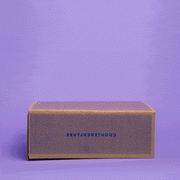Among our long-term suppliers, only one can hold the distinction of being the oldest and most tenured. That is Finca Pashapa, with whom we’ve partnered for over 20 years. In 2002, Counter Culture purchased 30 bags of Finca Pashapa coffee. By 2005, we had met the Salazar family, the farm's owners, and by 2008, we had visited their farm in Honduras. Over the years, both our businesses have evolved, but the Salazars' unwavering commitment to environmental stewardship has inspired a continuous partnership.
The Salazars began cultivating coffee in western Honduras in 1965, a region once known for growing sugar cane. The farm's name itself reflects its history, derived from a popular snack of boiled-down sugarcane panela served on a tortilla. Jorge Salazar and his wife, Coyo, raised their six children—Yeny, Roberto, Oscar, Mauricio, Yesenia, and Mirna—on Finca Pashapa. Today, Roberto and his siblings run the farm and family business together. Roberto manages sales and also serves as the general manager of Cocafelol, a local cooperative. Mauricio is in charge of production, while Yeny handles finance. In addition to their coffee operations, the family operates several local businesses, including stores, restaurants, and a small inn. They are dedicated to sustainable, organic production, using self-made fertilizers and maintaining a robust shade system.
While some may have reservations about dark roasts, associating them with a "lipstick on a pig" approach that masks lower-quality flavors with excessive smokiness, dark roasting can bring out a sweet and complex profile when applied to high-quality coffees like Finca Pashapa. This year’s roast, with its reduced acidity and increased body and richness, exemplifies how a darker roast can enhance the inherent qualities of exceptional coffee.
![]()
![]()
![]()
![]()
![]()
![]()
![]()
![]()














